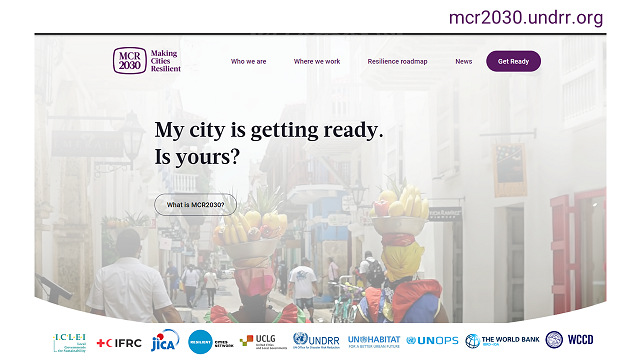Sustainable development is directly linked to the development of cities. In urban regions, cities are the scene of disaster risks that take on new dimensions, shapes, and proportions. The interconnection between risks is increasing and the complex interrelationships between urban systems think about the development of cities from the point of view of resilience.
A study released by the scientific journal Nature Climate Change in 2014 shows that globally, extreme weather events have doubled in the past 20 years and make city dwellers more vulnerable to increasingly frequent and intense disasters. At the regional level, the consolidation of sustainable and resilient cities has become one of the biggest and most urgent challenges, where the growing urban population moves and settles in areas at risk.
The campaign developed by the United Nations Office for Risk Reduction (UNDRR) drives the development of technical capacity, connects various levels of government, and promotes strategic partnerships on a global scale, in addition to meeting the growing need to increase resilience at the local level.
During the regional launch of the Initiative, Rodrigo Perpétuo, Executive Secretary of ICLEI South America, stressed that the concept of cooperation is fundamental to the scaling up of the initiative: “Governments do not work alone, they need multilevel action, academia, organizations from the civil society and, mainly, of the people who live in the cities.”
The Making Cities Resilient (MCR2030) initiative also promotes the creation of a regional structure where actors with strong ties and experience in implementing actions to reduce disaster risk connect with cities that advance in strengthening their resilience.
